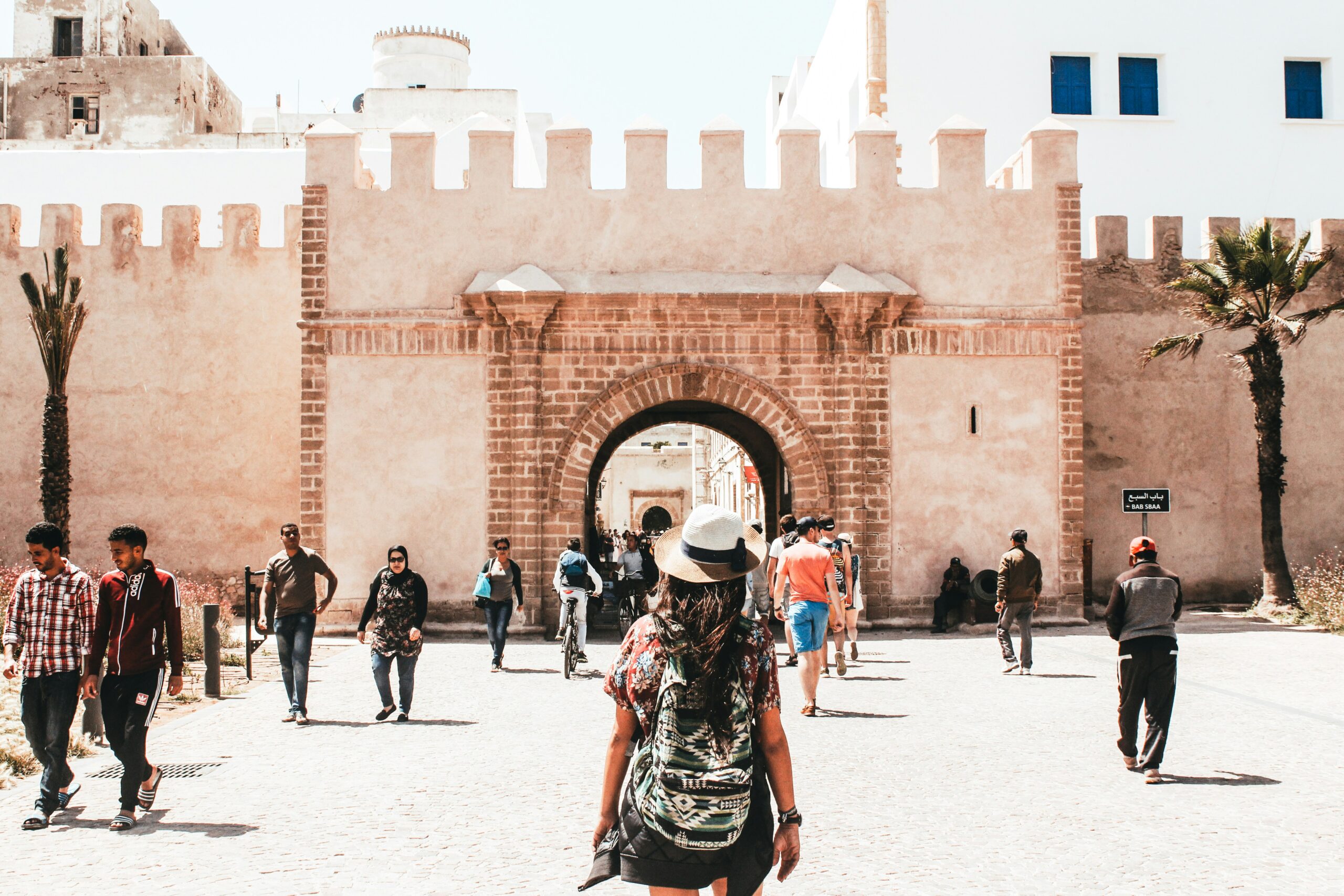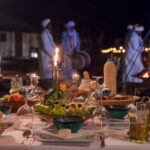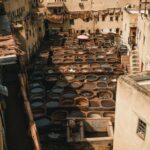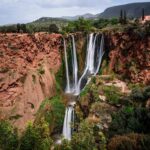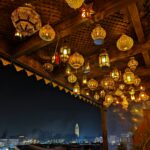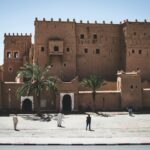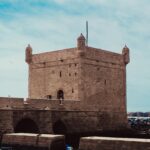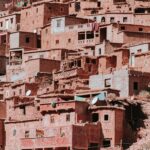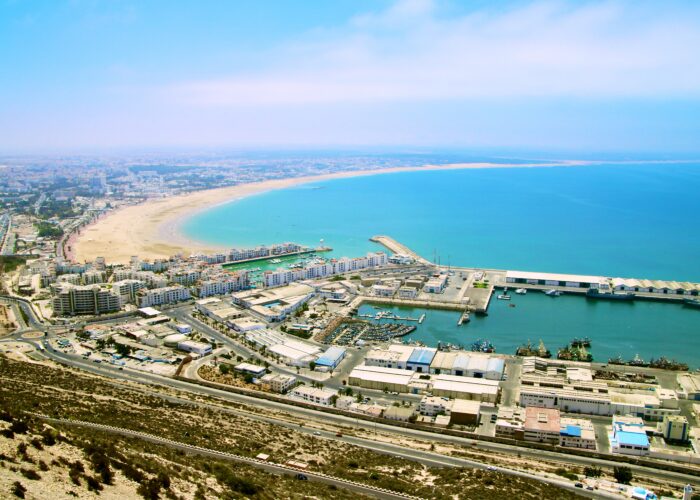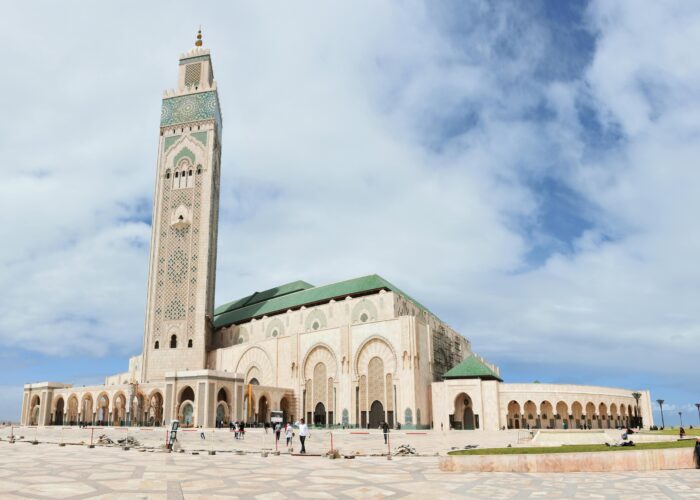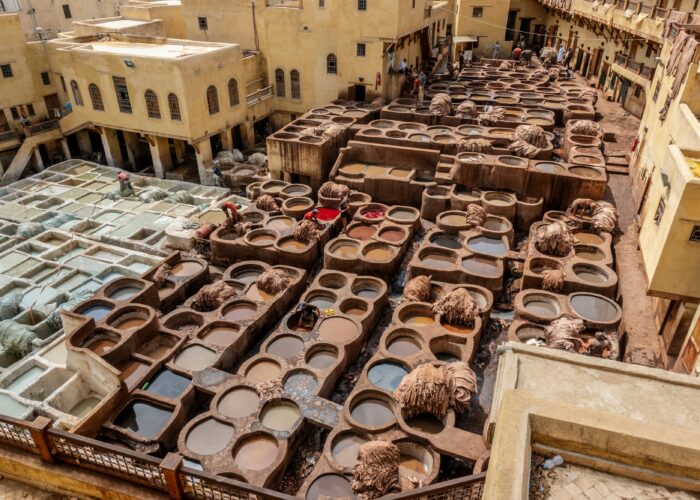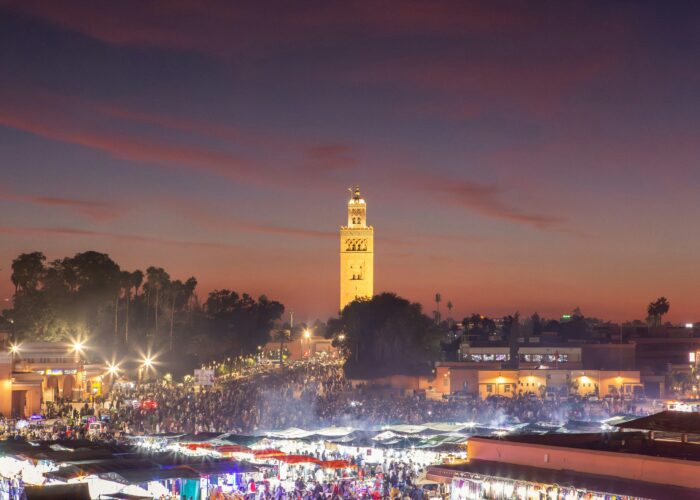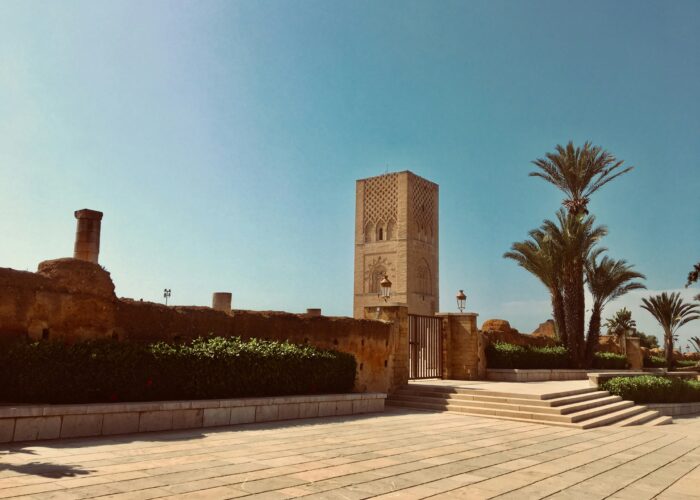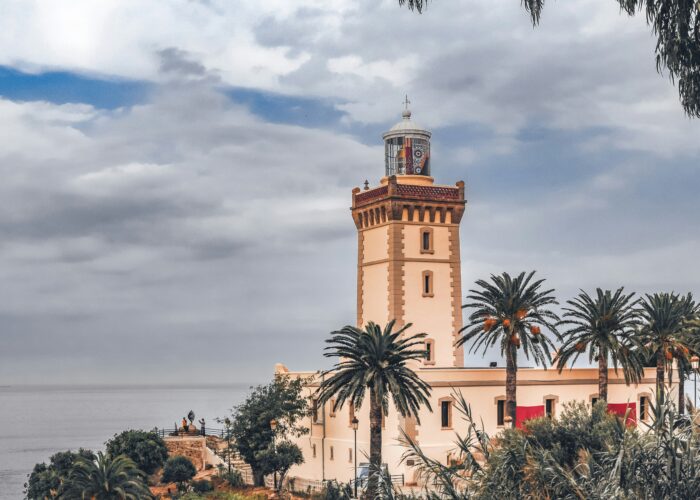General Safety Overview: Is Morocco Safe Overall for Tourists?
Morocco, a nation rich in history and culture, has become an increasingly popular destination for international travelers. When considering safety while visiting Morocco, it is crucial to look at government travel advisories, such as those from the United States and the United Kingdom. These advisories typically emphasize the overall safety of the country. While certain regions may pose challenges, many tourist-heavy areas like Marrakech, Fes, and Casablanca report low levels of violent crime.
Travelers often find that incidents of crime tend to be minor, largely consisting of petty theft and scams, rather than violent offenses. According to various statistics, the risks associated with visiting Morocco are comparable to those found in many parts of Europe and other global tourist destinations. This assessment is important as it helps align travelers’ perceptions with the realities of safety in Morocco, countering the often sensationalized media portrayals that can create exaggerated fears.
Personal experiences shared by tourists also tend to support this optimistic viewpoint. Most visitors report a welcoming atmosphere, characterized by friendly locals and enriched cultural exchanges. It is essential to remain aware of your surroundings and practice common-sense safety measures, such as avoiding quiet streets at night and safeguarding personal belongings. Such precautions significantly enhance one’s experience, leading to a better appreciation of Morocco’s vibrant culture without the constraints of fear.
Despite occasional concerns about safety, nothing diminishes Morocco’s allure. The warmth of its people, the vibrancy of its markets, and the beauty of its landscapes contribute to an inviting environment for exploration. As a result, while it is wise to remain vigilant, travelers can enjoy Morocco with a sense of security, provided they adhere to local norms and practices. Understanding the nuanced realities of safety in Morocco allows tourists to navigate the country more confidently, enriching their journeys and experiences.
Police Presence and Tourist Security
The safety of tourists in Morocco is a priority for both local authorities and the government. In popular cities such as Marrakech, Fes, and Casablanca, there is a noticeable police presence, which contributes significantly to the perception of safety among visitors. The Moroccan police are committed to ensuring that tourists feel secure while exploring the vibrant culture and historic sites of the country.
One of the key components of tourist security is the presence of designated tourist police. These officers are easily identifiable and are often stationed in heavy foot traffic areas such as souks, public squares, and landmark attractions. Their primary role is to assist tourists by providing information and addressing any concerns regarding safety. Additionally, these officers are trained to handle emergencies and to maintain a welcoming environment for visitors, thereby reinforcing the feeling of security within tourist hotspots.
Regular patrolling further enhances the safety of tourists in Morocco. The police frequently conduct patrols in high-traffic areas, which not only deters potential crime but also offers reassurance to travelers. This proactive approach is coupled with various initiatives aimed at protecting tourists. For instance, in recent years, Morocco has implemented campaigns to raise awareness about safety and local customs, ensuring that tourists are well-informed about the cultural norms they may encounter during their visit.
In conclusion, the visible commitment of law enforcement in key tourist destinations, along with the implementation of targeted security measures, fosters a sense of safety for visitors in Morocco. This proactive engagement is vital in maintaining Morocco’s reputation as a welcoming destination for travelers from around the world.
Cultural Considerations and Local Etiquette
Traveling to Morocco offers visitors a unique opportunity to immerse themselves in a rich tapestry of cultural heritage. Understanding local customs and etiquette is crucial for ensuring a respectful and enjoyable experience. One of the most significant customs in Morocco is the dress code. While Morocco is known for its vibrant markets and beautiful landscapes, modesty in clothing is highly valued. For both men and women, dressing conservatively is advisable, especially in smaller towns or rural areas. Loose-fitting clothing that covers the arms and legs is deemed appropriate, and women may choose to wear a headscarf when visiting religious sites.
Another key aspect of Moroccan culture is the importance of greetings and personal interactions. When meeting someone for the first time, a handshake is customary, often accompanied by a slight bow of the head as a sign of respect. It is also common to inquire about a person’s well-being or family before engaging in conversation, reflecting the significance of relationships in Moroccan society. Additionally, using basic Arabic phrases, such as “salam” (hello) or “shukran” (thank you), can foster goodwill with locals and enhance social interactions.
In terms of public behavior, it is essential to be aware of local norms regarding personal space and physical contact. Public displays of affection, particularly between couples, may be perceived as inappropriate in more conservative areas. Always strive to be courteous and observant of the social context, as this can lead to positive interactions and deeper insights into Moroccan culture. Respecting local customs not only demonstrates cultural sensitivity but significantly enriches the travel experience, allowing tourists to engage more meaningfully with the vibrant communities they encounter during their visit.
Health and Medical Safety in Morocco
When traveling to Morocco, it is essential to prioritize health and medical safety to ensure a well-rounded and enjoyable experience. Access to healthcare varies across the country, with larger cities such as Marrakech and Casablanca having more modern facilities compared to rural areas. Tourists should familiarize themselves with the locations of hospitals and clinics, particularly in regions they plan to visit. Many medical professionals in urban centers speak English and are accustomed to dealing with foreign visitors.
Before embarking on your journey, it is advisable to consult a healthcare provider regarding recommended vaccinations. Common vaccines include those for hepatitis A, hepatitis B, typhoid, and tetanus-diphtheria. Depending on your travel itinerary and activities, additional vaccinations may also be suggested. Travelers should also consider discussing malaria prevention with their healthcare provider, especially if they intend to visit regions where the disease is prevalent.
General health precautions are vital for avoiding illness during your stay in Morocco. It is crucial to stay hydrated, particularly in hotter climates. Drink bottled water rather than tap water, and ensure that the seal is intact before consumption. Additionally, be cautious with food by only consuming well-cooked meals from reputable establishments. Street food can be enticing; however, ensure that it is freshly prepared in a hygienic environment to minimize the risk of foodborne illnesses.
Sun protection is another key aspect of health safety in Morocco. The intensity of the sun can be high, particularly in summer months; therefore, using sunscreen, wearing hats, and seeking shade when necessary are highly recommended. By taking these precautions, visitors can significantly enhance their health and medical safety while exploring the rich culture and stunning landscapes of Morocco.
Transportation Safety Tips
When visiting Morocco, navigating the local transportation system effectively is crucial for a safe and enjoyable trip. The country offers various modes of transport, including taxis, buses, and trains. Each mode presents its own considerations regarding safety and efficiency, and understanding these can significantly enhance your travel experience.
Taxis in Morocco are a common means of transportation, and they can be broadly categorized into two types: petit taxis and grand taxis. Petit taxis operate within city limits and are usually metered, allowing travelers to gauge the fare before starting their journey. However, it is advisable to confirm that the meter is functioning or negotiate a fare beforehand. Grand taxis, which are larger vehicles typically used for inter-city travel, operate on fixed routes. Always choose a reputable taxi service and avoid getting into unmarked taxis to ensure your safety.
Buses are another economical option for traveling between cities and within urban areas. While local buses can be crowded and may not strictly adhere to schedules, they are generally safe. It’s wise to remain vigilant regarding your belongings, as petty theft can occur in busy public transport scenarios. Some larger cities also have services like the CTM bus line, which is more comfortable and reliable but may require advance reservations.
Finally, trains offer a convenient way to travel between major cities, such as Casablanca, Marrakech, and Fez. The Moroccan railway system is relatively modern and safe, providing a scenic way to experience the landscape. While onboard, keep your personal items secured and be mindful of your surroundings, particularly during busy travel hours. By adhering to these transportation safety tips, tourists can navigate Morocco’s diverse transport options with confidence and ease.
Natural Hazards and Precautionary Measures
Morocco is renowned for its stunning landscapes, which range from the rugged Atlas Mountains to the vast Sahara Desert and beautiful coastlines. However, this diverse geography also presents various natural hazards that tourists should be aware of before embarking on their journey. Understanding these risks is essential for ensuring a safe and enjoyable trip.
One of the main concerns for visitors is extreme weather. In the summer months, temperatures in desert areas can soar above 40°C (104°F), creating potential heat exhaustion and dehydration risks. Tourists exploring the Sahara should stay hydrated, wear appropriate clothing, and seek shelter during peak heat hours. Conversely, winter months in mountainous regions can bring snow and icy conditions, leading to safety hazards for those interested in hiking or skiing. Proper gear, including waterproof clothing and traction devices for footwear, is advisable for navigating such environments.
Earthquakes can occur in Morocco, particularly in regions near the tectonic boundaries. Although significant seismic events are relatively rare, it is prudent for travelers to educate themselves on safety protocols. In the event of an earthquake, individuals should move away from structures and seek open areas away from potential hazards.
Outdoor activities such as hiking, rock climbing, and water sports are sought after in Morocco. For these pursuits, it is essential to choose a reputable guide who understands the landscape and its potential dangers. Furthermore, tourists should always inform someone of their plans and estimated return times, especially when venturing into remote areas. Proper preparation and precautionary measures can greatly mitigate the risks associated with natural hazards, allowing travelers to enjoy the beauty and adventure that Morocco has to offer.
Emergency Contacts and Resources for Tourists
Understanding the various emergency contacts and resources available in Morocco is crucial for tourists to ensure their safety and well-being during their travels. In emergency situations, tourists should be aware of the specific numbers to call for assistance. The universal emergency number in Morocco is 19 for police assistance, 15 for medical emergencies, and 19 for fire services, which can be dialed from any phone. These services are available to respond quickly to any urgent situation, offering peace of mind while exploring the country.
In addition to emergency services, tourists may require assistance from their respective embassies or consulates. Notably, the U.S. embassy is located in Rabat, providing necessary support for American tourists, including help in cases of lost passports or legal issues. For other nationalities, it is advisable to have a list of local embassies within reach. The contact information for these embassies can typically be found on their official government websites. It’s recommended that tourists make a note of these contacts prior to their visit.
Moreover, several organizations exist to assist travelers in Morocco. The Moroccan National Tourist Office offers valuable resources and information regarding safety tips, local laws, and culture to enhance the travel experience. Tourists can access this information online or through local tourism offices found in major cities. Additionally, the local police are generally approachable and can assist tourists who need direction or help in non-emergency situations.
By familiarizing themselves with these essential contacts and resources, tourists can significantly enhance their safety and are better prepared for any unexpected occurrences during their stay in Morocco.
Final Thoughts: Safety and Enjoyment in Morocco
Traveling to Morocco can be a thrilling and enriching experience, offering visitors a unique opportunity to immerse themselves in the country’s vibrant culture, stunning landscapes, and rich history. While safety concerns are valid for any traveler, understanding the dynamics of Morocco can help enhance your trip while ensuring a secure environment. As highlighted earlier, awareness of local customs and adherence to safety recommendations are crucial steps in having a safe visit.
It is essential for tourists to be informed about the areas that are generally safe and those that may require a more cautious outlook. Urban centers like Marrakech and Fes are brimming with cultural experiences, markets, and historical sites, but they also necessitate awareness of potential scams and petty crime. Engaging with friendly locals and utilizing reputable tour guides can enrich your journey without compromising your safety.
While important, safety should not become a barrier to enjoyment. The beauty of Morocco lies in its diverse landscapes, from the Sahara Desert to the Atlas Mountains and coastal cities like Essaouira. Travelers should endeavor to balance caution with a genuine desire to experience the local way of life, savor traditional dishes, explore vibrant bazaars, and enjoy the warm hospitality of Moroccan people. Making informed choices about accommodations, transportation, and activities can contribute significantly to a fulfilling experience.
In conclusion, Morocco offers a captivating adventure for tourists willing to take calculated precautions without minimizing the potential for enjoyment. By remaining conscious of safety while immersing oneself in the country’s alluring culture, visitors can appreciate what Morocco has to offer, ensuring that their trip is memorable for all the right reasons. Embrace the journey, and let the beauty of Morocco leave an indelible mark on you.

